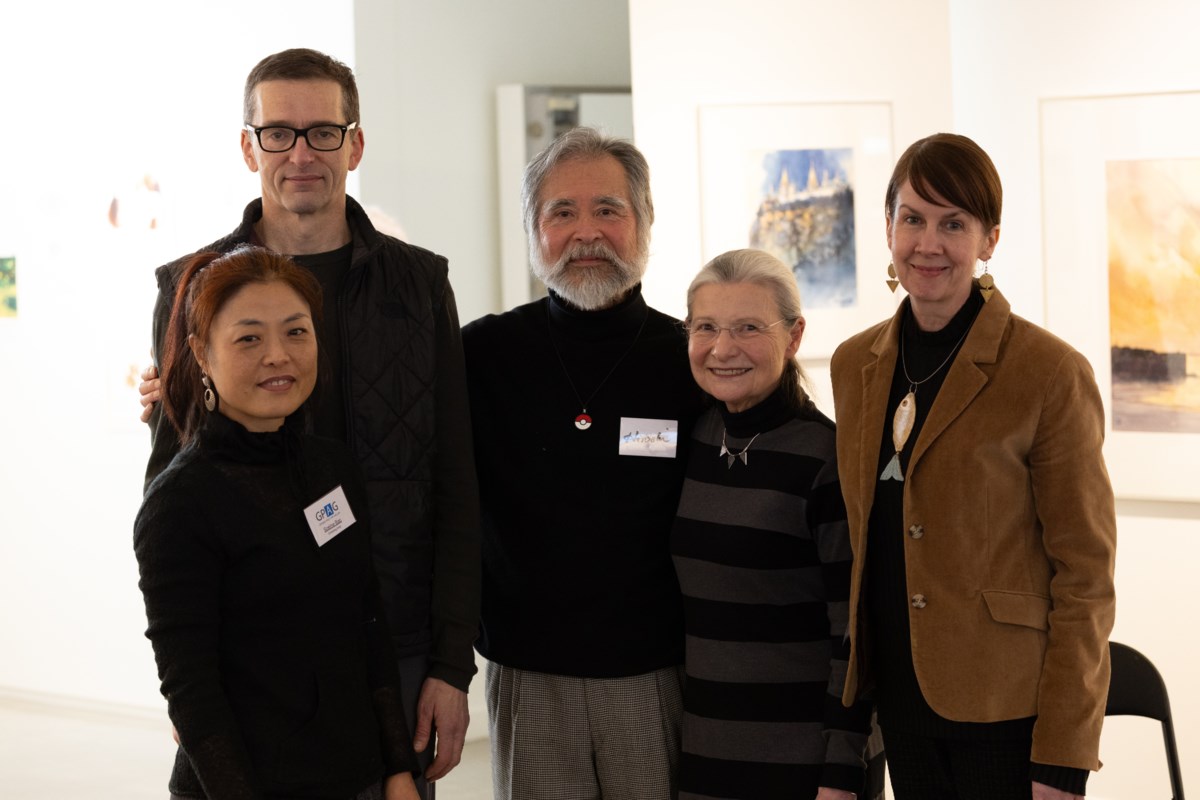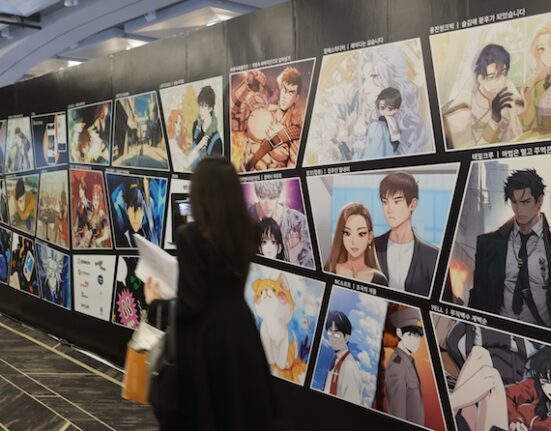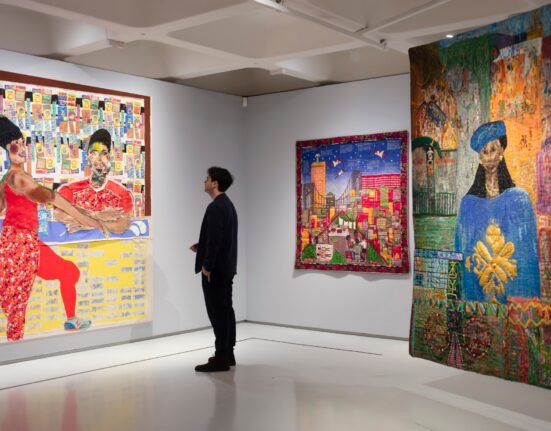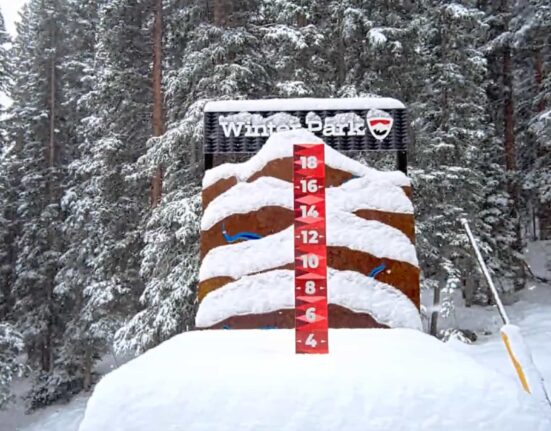The World As I See It and Oddments remain at the Gibsons Public Art Gallery until Feb. 11.
Two artists adept at telescoping the world’s enormity into solemn introspection have opened the first exhibitions of 2024 at the Gibsons Public Art Gallery.
A crowd of nearly 50 admirers gathered on Jan. 13 to meet watercolourist Hiroshi Shimazaki and printmaker Soeine Bac.
Shimazaki, a resident of Halfmoon Bay since 2012, introduced his collection of five dozen full-size paintings and miniatures created from firsthand observation on six continents. Subjectivity is baked into the show’s title: The World As I See It.
“This show is essentially myself trying to figure out who I am,” said Shimazaki. “It was the question I asked 60 years ago when I started to paint, and the question was never answered. I don’t think it will be.”
Shimazaki was born in Tokyo and taught himself watercolour painting while cultivating an academic career in cultural geography and international management. While based at the University of Lethbridge, he also assumed visiting professorships in South America, Europe and Asia.
“For me, the greatest teacher for landscape painting is the landscape itself,” Shimazaki wrote in his artist’s statement. During an interview with the Coast Reporter, he made a sweeping gesture that ended with a tap on his forehead: “These works talk about my world, which exists only in here.”
The scope of Shimazaki’s works is vast, and includes some of his earliest output: a simian self-portrait (the creature tries to catch his own reflection, an allegory for the painter’s art) and a rendering of a kidney stone extracted in 1970. “This symbolizes the beginning of my journey into painting,” he said.
Shimazaki eventually expanded his focus from millimetre-sized mineral deposits to mountaintop experiences, as in his rendering of Adam’s Peak, a holy site in Sri Lanka. He joined throngs carrying torches to the summit just before dawn and prepared a preparatory sketch onsite. Other times, as when painting Strangford Lough in Northern Ireland, he captured the scene in his own memory. Later in the studio, he expressed the tranquil landscape in misty shades of cerulean. When visiting Allahabad, India, he sublimated the contiguous shapes of 30 million pilgrims into components of the storied landscape itself: in Kumbh Mela, the masses surge inexorably toward the Ganges.
“Pilgrimage is a ubiquitous phenomenon,” said Shimazaki.
“Corporations and nations disappear, and no private company existed for more than 2,000 years. Yet certain human activity in relation to a particular place — pilgrimage — somehow survived. I was interested in how man and place interact with each other over time to maintain this institution.” He began his career as a cultural geographer by walking 1,385 kilometres to visit 88 Buddhist templates on the island of Shikoku.
Other works use Shimazaki’s subtle palette to depict stillness, as in an expansive triptych showing Italy’s Bay of Naples in effulgent yellows. Frank Slide imagines the placid aftermath of the 1903 landslide that decimated the town of Frank, B.C. in the Crowsnest Pass. Above ruins and the still-menacing slope, billowing clouds of dust are permeated by the faint glow of morning.
Silence is a theme also embraced by Vancouver-based artist Soeine Bac. Bac’s Oddments show — presented in the Eve Smart Gallery — is the culmination of a decade-long fascination with leftover remnants from everyday ephemera. Her Fish Series of prints uses coffee, henna and beet juice root on watercolour paper to represent the skeletal remains of aquatic creatures. One-eyed Dog in the Land of the Blind simultaneously conjures the austerity of ancient cave paintings and a jaunty slant on modern iconography. Her Paper Cave transforms creased textiles into organic shapes and seductive shadows.
“I feel something when I see nature, and I wanted to know what that is,” Bac said. The Korean-Canadian artist, who studied in Vancouver and at the University of London, visited the Sunshine Coast for the first time for the exhibition opening. “I’ve noticed silence is a really big subject [in my work],” she added. “Silence works to reveal the aesthetics that I feel.”
The World As I See It and Oddments remain at the Gibsons Public Art Gallery until Feb. 11.
During the exhibition, Shimazaki plans to be at the gallery to answer questions about his work and will be onsite on Sundays from 2 p.m. to 4 p.m.







